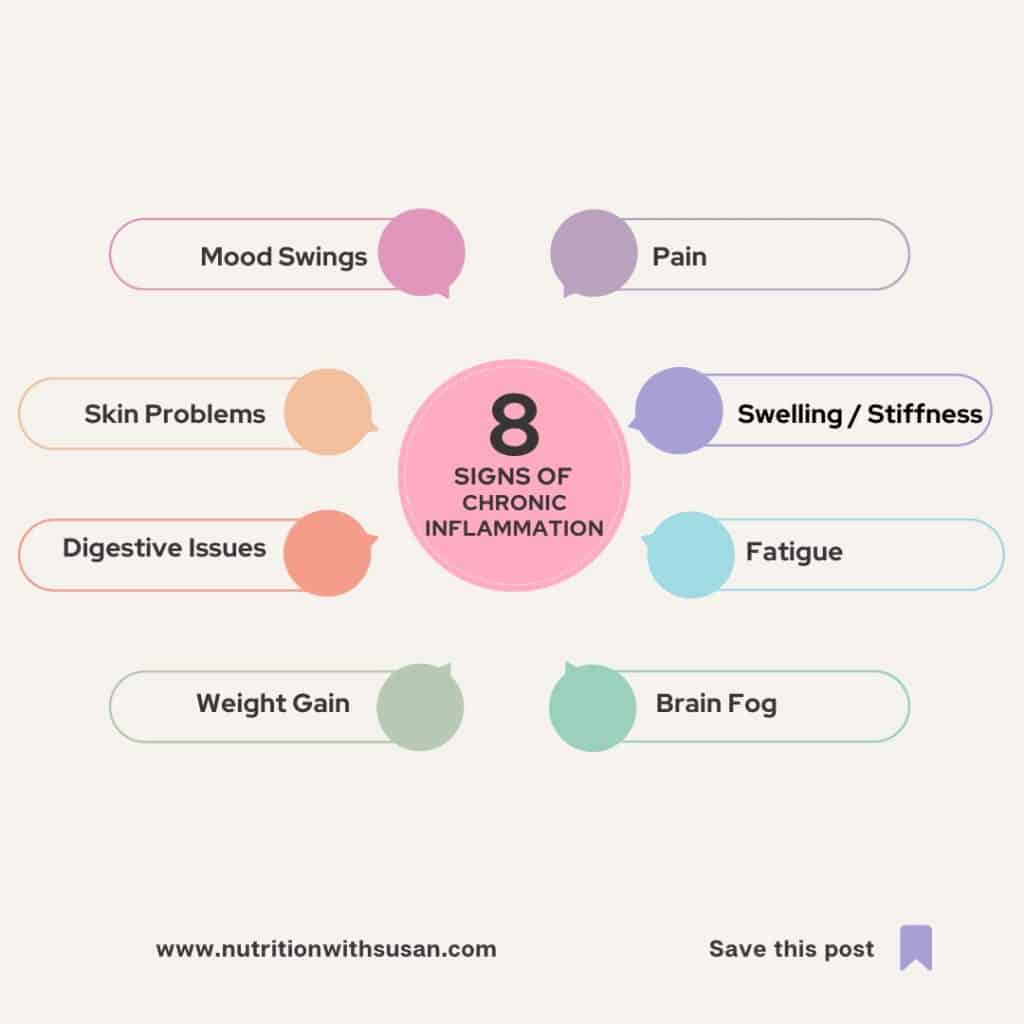Introduction
Inflammation is a natural part of the body’s response to injury and stress. Acute inflammation helps to fight off infection and heal damaged cells. However, chronic inflammation can lead to symptoms that make everyday life a living hell!
If you have an autoimmune disease or suspect that you may have one, inflammation can cause uncomfortable and even painful symptoms. It’s important to understand the difference between normal inflammation and chronic inflammation so that you can get the right treatment for your condition.
While inflammation is a natural response to injury or illness, it can become chronic if left untreated. Here are 9 signs that you may have an underlying chronic inflammatory condition.

Signs Of Chronic Inflammation
- Pain – Chronic pain is one of the most common signs of inflammation, especially in joints and muscles. If you’ve been suffering from unexplained and chronic muscle or joint pain, it could be a sign that your body has been fighting off an infection for some time. Pain not caused by an injury or that persists for more than two weeks should be checked out by your doctor as soon as possible.
- Swelling – Inflammation typically causes swelling, which can range from mild discomfort to extreme tenderness and redness in the affected area. If your joints are swollen or tender, it could be indicative of an underlying inflammatory condition.
- Stiffness – When inflammation is present in the body, stiffness in the joints and muscles can occur due to increased tension in the area. This stiffness can cause difficulty moving around and performing everyday tasks like walking or getting dressed. Stiff joints can be caused by inflammation in the joints, which may lead to more severe conditions like arthritis if left untreated for too long.
- Fatigue – Feeling exhausted after minimal physical activity is another classic sign of inflammation in the body. The fatigue associated with inflammation can also make it difficult to concentrate on tasks throughout the day and lead to feelings of mental exhaustion as well as physical fatigue.
- Brain fog – Brain fog is a symptom often associated with inflammatory diseases like lupus or rheumatoid arthritis, but it can also be caused by other illnesses such as Lyme disease or fibromyalgia. Symptoms include confusion, difficulty concentrating, memory loss, and difficulty processing information quickly.
- Weight gain – Unexplained weight gain or loss can also be a sign of inflammation because your metabolism will slow down when there’s too much stress on your immune system fighting off bacteria and viruses. Such weight gain may indicate that something more serious than dieting is at play; namely, inflammation-causing hormones to be released into your body which leads to fat storage instead of fat-burning processes taking place within your cells – leading to weight gain even though you may eat healthy or exercise every day.
- Digestive issues – Many people experience digestive issues such as bloating, cramping, indigestion, constipation, or diarrhea when their bodies are inflamed from an autoimmune condition or other sources of stress on their systems. Pay close attention to how your digestive system responds after eating certain foods; if you experience discomfort shortly afterward this could indicate an underlying issue with your gut health related to inflammation in particular parts of your body. Gas, bloating, diarrhea, and constipation all point toward a digestive issue which could very well be linked back to an inflammatory disorder such as Crohn’s disease.
- Skin Problems – Chronic skin problems such as acne, psoriasis, and eczema are all potential signs of underlying inflammation in the body. These conditions often flare up due to environmental triggers like diet or lifestyle habits, however, they can also be caused by an inflammatory response in other parts of the body as well.
- Mood Swings – Finally, mood swings and feelings of extreme sadness or depression can also indicate underlying issues related to chronic inflammation in your body. If you find yourself frequently feeling down despite making healthy lifestyle changes, this could mean there’s something deeper going on within your system that needs attention.
Conclusion
If you’re experiencing any of these signs of chronic inflammation—pain, swelling, stiffness, fatigue, brain fog, weight gain, digestive issues, skin issues, or mood swings—it’s important to talk with your doctor about possible underlying causes so that you can get effective treatment for yourself!
Don’t stick your head in the sand and hope it’ll all go away – unfortunately, things don’t work this way. Find a functional medicine practitioner to get to the root cause of what’s causing your chronic inflammation.
You deserve to feel better and live the life you want to live. If you’d like to take a deep dive and get back on the right track, I’d love to help you on your road to recovery. Check out my Signature Coaching Bundle and if it resonates with you, sign up to work with me.
***Disclaimer: This post is for informational purposes only and should not be construed as medical advice***


